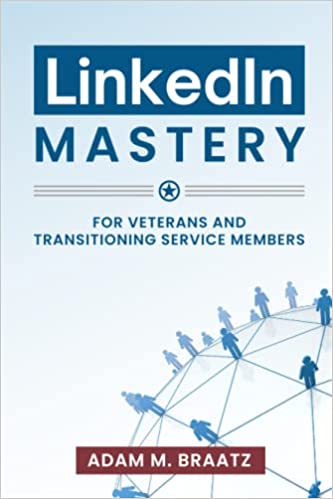So this is the year you are finally ready to change jobs. Congratulations! Before you dust off your resume, there are some questions you need to ask before launching your job search.
Searching for a job while employed requires you do it under the radar so that your employer doesn't find out. Some employers have been known to terminate employees when they hear they are looking for a new job.
So let me warn you about a few things if you are employed and looking:
- Never use company time or resources to job search. Even if it's slow around the office, avoid the temptation to update your LinkedIn profile, email friends about job opportunities or update your resume.
- Keep your search confidential. Don't let your coworkers know you are job hunting. You don't want them to leak the news to anyone within your company.
- Be careful about what you post on any of your social media accounts, even your personal ones.
Below are the 10 questions you want to answer to successfully launch your job search.
Do you want to move up, over or out?
Do you want a promotion, a new and different challenge or do you want to work in a new company altogether? You don't always have to leave your employer to get what you want. No matter which of these you decide on, you'll need to be clear about what you want next.
This article will help you explore these options further. Questions to ask before you quit.
What do they call what you want to do?
Job titles can vary widely. In fact, there are new job titles appearing every day. Do some research about roles inside and outside of your company to see what they call jobs that allow you to use the skills you like using most or want to use more.
You will find it frustrating if you aren't searching for the right titles.
LinkedIn's 2024 U.S. Emerging Jobs Report. This list came from the analysis of LinkedIn data from the last five years, as well as some survey data, to identify which jobs and skills are on the rise.
Take note of similar job titles and skills required.
You may also want to check out LinkedIn's Career Explorer. This tool uncovers career paths by matching your skills to thousands of job titles
What companies do you want to work for?
It sounds crazy, but you are going to want to start here. Create a list of companies you think you might want to work for.
If you plan on staying in the same city, look beyond the companies you already know. Take a look at the top employers' list for your city or peruse your city's economic development website to uncover companies you may not have thought of. Want to relocate to a new city? Look for a list of the top employers within that city.
Now, you can view the company's career portal to see what types of jobs are currently posted and use LinkedIn to see what else you can learn about the company and its employees.
Use your list as a starting point for research and arranging networking meetings with people who work inside those companies.
Learn more about creating your target list here. How To Find Target Companies For Your Job Search.
Who will you reach out to?
In case you didn't realize it, companies prefer to hire candidates who are referred by employees. The proof is right here.
This means you should tap your past colleagues and friends now and let them know about your confidential job search.
FYI: You can network and reconnect with people you know without having an updated resume. In fact, you shouldn't even try to present your resume without first seeing a job posting.
Read about the 10 types of people you need to network with.
What will you say when someone asks “tell me about yourself?”
You will be asked some version of this question when talking to new people and during interviews. It's important to have a concise yet interesting synopsis of what you do and what's next for you. Your response needs to be spoken confidently and capture the attention of the person who is asking. To learn more about the different ways to answer this question.
What outside activities are you involved in?
If you aren't currently active in any outside organizations, now is the time to find professional associations or groups related to your desired career.
Attend meetings and network with people who are in the field.
Bonus: Volunteering for a committee is a great way to gain additional exposure and opportunities to demonstrate your skills and knowledge.
What are your salary expectations?
Early in the application process, you will be asked about your salary requirements. Take the time to do some salary research now to make sure your expectations are in line with the reality of the jobs you are interested in. Your last salary may or may not be in line with what other companies are offering and it's best to uncover that information before you pursue opportunities.
Check salary websites and ask people who hold similar jobs what they think the going rate is for that type of work.
Read The Best Ways to Find Salary Information
Ultimately, you want to have a range in mind. You'll need it when filling out a job application. Also keep in mind that some industries like non-profits and higher education, tend to pay less.
What does Google say about you?
Right now, go search for your name in a search engine, Google or Bing for example.
What comes up on the first page of search results?
Is every result the right one and information you would want a future employer to see? You can fix this by creating your own website with your name as the URL, publishing articles to industry newsletters or even writing a book review on Amazon.
Having difficulty getting the best stuff about you on page one? Learn the Job Seeker: Get on Page One.
If you are active on other social networks, you may want to clean those up now too.
Is your LinkedIn profile job search ready?
There's a lot you can do to enhance your LinkedIn profile so it features your successes and shows up in search results. Here are some of your top priorities for updating your profile when launching your job search.
- Does your LinkedIn profile have a clear headline that shows your skills?
- Is your About section more than 40 words? Does it tell the career story you want it to?
- Have you included skills under each job and in your About section?
- And most importantly, is your profile set to “public” so anyone can see it?
Carefully reevaluate your headline. Will it help someone viewing your profile know what you are good at doing? If you don't want to draw attention to your undercover job search then you may not want to modify your headline. Here's how to fix your LinkedIn headline.
Your About section is sort of like a pre-pre interview. Make sure it answers the question “tell me about yourself.”
Update your work history and be sure to mention the skills and projects that will qualify you for your next role.
Here's more help on updating your LinkedIn profile.
Finally, now that your profile is updated, begin to use the tool to connect with more people and share one article a day. Share news about your current employer's success, client successes, and news about industry trends (current and future). And comment on posts that align with your future career goals.
Is your resume up to date?
This is the last question on the list for a reason. All the research you did and conversations you've had will help you write a stronger, more relevant resume.
When you find do find a job you are interested in, you'll want to make sure your resume shows you are a match.
Most hiring managers and recruiters are interested in your current job and how well it aligns with their opening.
Don't just list your job duties. Start by reviewing each job requirement and make sure your resume explains how you've done similar work. Every bullet on your resume should include the results or outcomes in terms of money saved, improved productivity or efficiency, or the quantifiable impact you made.
Need more help?
Launching a job search requires a plan. Here's a checklist of things you need for your job search. If you are looking for help creating a plan for your job search check out these services.



